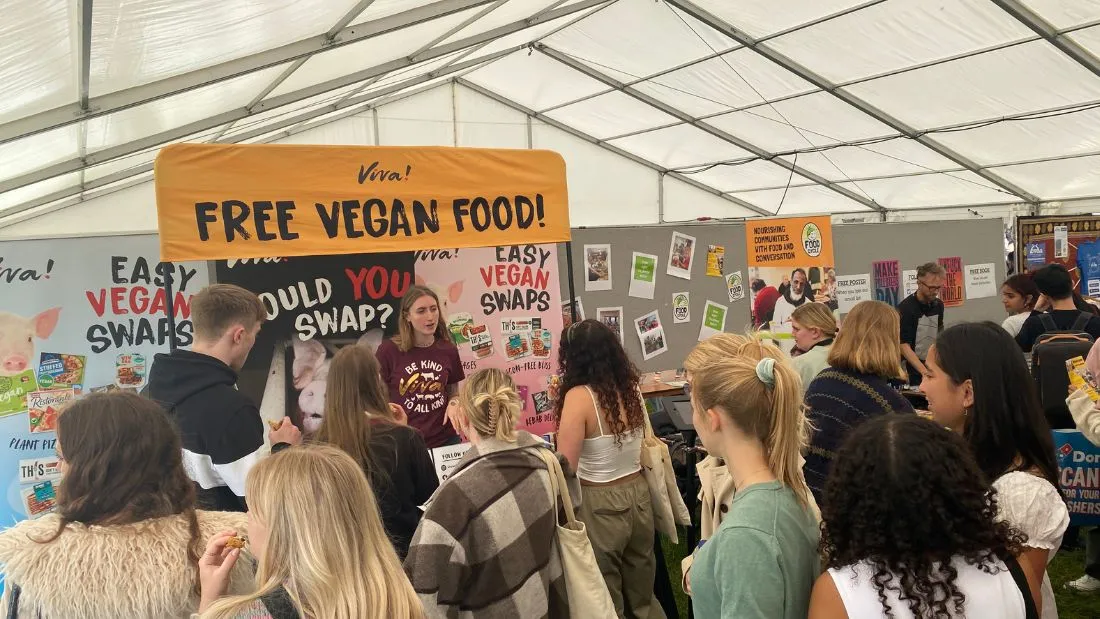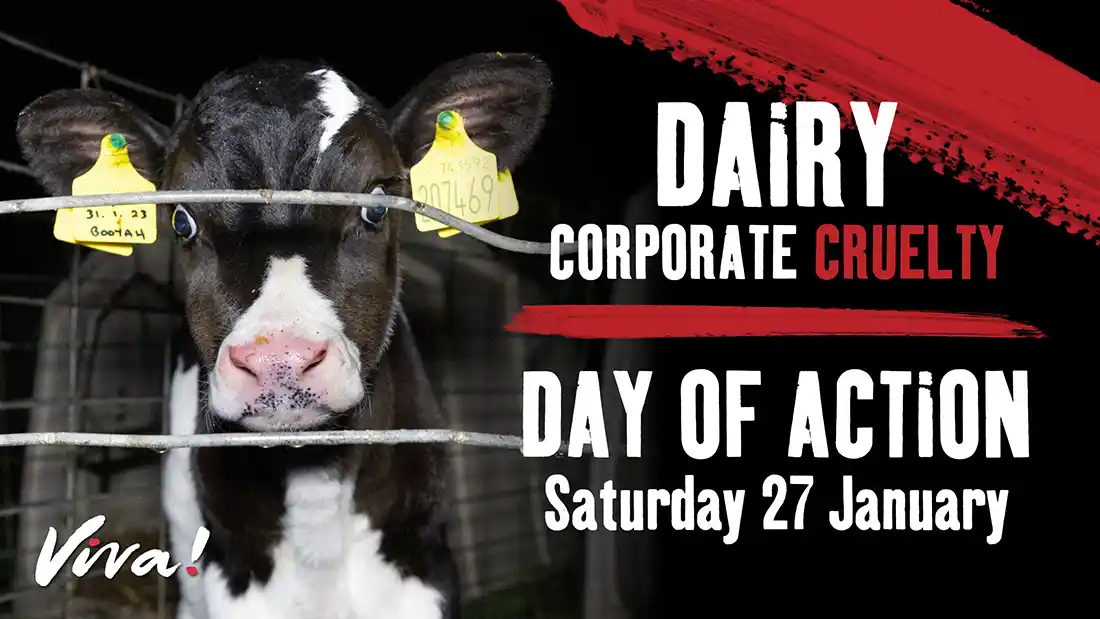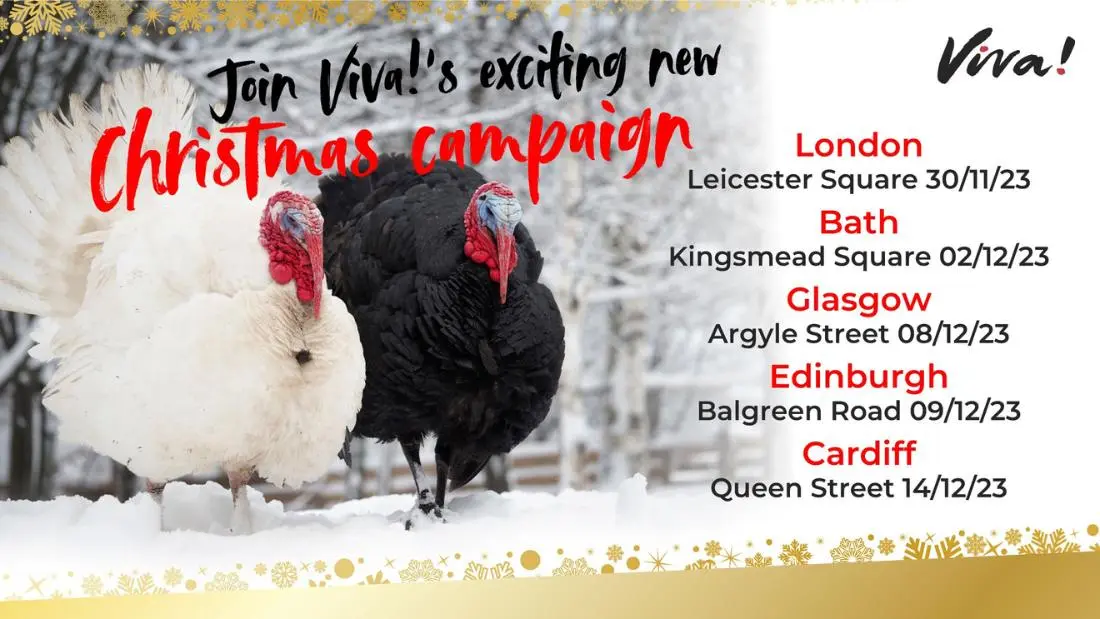Cows
Cows are beautiful, intelligent and incredibly socially and emotionally complex creatures. Studies have shown that cows are not only deeply friendly animals but that they actually have best friends within their herds. Their distinctive “moo” sounds also vary by region – in a sense, this means cows have accents! Despite all this, cows are still treated awfully in farms across the UK, as they are used for beef, dairy and veal.
How are cows farmed in the UK?
Cows are farmed for beef, dairy and veal. Let’s look at cows raised for beef first.
Cows raised for beef
Life starts for a beef cow by cutting or burning off the area where their horns will grow. This makes the adults less dangerous to the farmers, but it is a very painful process for the cows. Males are often also castrated, which also causes suffering and frequently infection and blood loss.
As the cows grow up, they are kept in very unhygienic conditions. Disease is a major risk for these poor animals. Many young calves die within a few weeks of birth.
Those cows that do survive are typically slaughtered at just 18 months old. The process of slaughtering is quite horrible. As cows can smell scents from up to 6 miles away, it is clear that they know exactly what is happening to them when they turn up at the abattoir.
It’s hard to imagine how scared the cows must be and how horrid the process is. All for a bit of beef!
Did you know that you can make spaghetti bolognese with lentils instead of beef? It tastes delicious, but it’s also cheaper, healthier, and doesn’t hurt any cows! Check out our Tin Can Spaghetti Bolognese.
Dairy cows
Pop science quiz! If you have studied biology in school, you may know that all mammals have a few defining characteristics. Without looking, can you remember what they are?
If you said any of:
- Mammals are warm-blooded, furry animals
- Mammals give birth to live young (rather than laying eggs like birds and many fish and reptiles)
- Mammals produce milk for their babies
Then give yourself a pat on the back! Mammals include humans, cows, whales and gorillas, to name just a few.
The last point is perhaps the most important for understanding what happens to dairy cows. Like all other mammals, dairy cow mothers produce milk for their own babies.
When humans drink cow’s milk, we deny that milk to the cow’s baby calf. As a result, calves are taken away from their mothers shortly after birth and kept in ‘isolation hutches’ which you can see in the short video at the top of this page.
Male calves are usually killed very soon after this for veal – which is like beef but from baby calves rather than adult cows. Females are destined for the same fates as their mothers.
The females are then impregnated artificially and forcefully as soon as they are old enough to become pregnant. They are then kept almost constantly pregnant for the rest of their lives, since (like humans) they only produce milk after giving birth. The constant birthing can cause significant damage – both physical and emotional – to the cow.
The milking process is very uncomfortable and usually done by machines. The average dairy cow in the UK gives off around 27L of milk per day – which is many times more than is healthy and natural!
Due to the high toll all of this takes on the cows’ bodies, dairy cows are usually killed at 4.5 – 6 years old for cheap minced beef.
The amount of suffering that dairy cows go through is simply not worth a few blocks of cheddar cheese or pints of milk – especially when such good alternatives already exist on the market!




